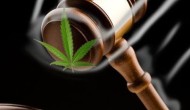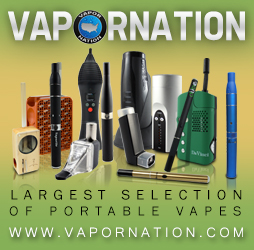Why is alcohol legal and marijuana is not?

This question really needs no details, alcohol is basically poison, it can kill you, it impairs your ability to do anything except be drunk, loud, and annoying. I’m not advocating prohibition but I don’t get why weed isn’t legal as well if alcohol is permitted to take thousands of lives every year.
My answer is becuz Nixon and Reagan were assholes, but that’s not a good enuf answer I know
Answering one response, ppl drink and smoke becuz it makes you feel different, I woulda said good but it doesn’t always, people like the feelings they get from chemical makeup in their bodies changing, example : sex, anything that gives adrenaline rush, etc etc. And this country was built on tobacco and hemp, I still blame nixon and reagan, they suck, bush Sr as well, all three are douche bags











Alcohol has a longer standing globally than marijuanna. And potheads are generally annoying so it doesn’t go far.
legalize marijuana.
nacy reagan is freaky, and not in a good way.
hm… maybe…
you can drink a little bit of alcohol (a bottle or 2) and you will be fine. but if you smoke just a little bit if marijuana, that poisons you. idk, just guessing. xD
Because we live in a bizarro world.
Google “Henry Anslinger” or look him up in wikipedia. He was giving morphine to McCarthy during the debates about Mexicans and Negroes using marijuana to get white women to sleep with them. So they outlawed pot to run the Mexicans back across the border with their evil weed and harrassed the Negroes in the French quarter in New Orleans till it went underground.
Alcohol has been more widely used and excepted since… as long as written history, and longer. Marijuana has probably been used just as long, if not longer, however not as widely used or excepted I suppose?
And mainly because people are stupid…..
there are so many misconceptions about what the effects of marijuana are and people that have never tried it believe them.
some people also believe that marijuana is a gateway drug, despite the fact that it has been proven over and over again that people that use hard drugs such as heroin, cocaine, meth began with alcohol or tobacco
For the same reason that bank robbery is against the law, but cutting the lawn is not. Its just the way we see things. I ask this question yet again, it must be the thousandth time I have asked it. Why do you want to smoke weed or for that matter get drunk?? why does no one answer that?
it was illegal for someone not to grow marijuana back when washington was prez.
It’s probably because the government doesn’t have a good hold on pot and they are trying to get their own company going so that they don’t have to rely on other sources for their product.
.Research has now shown that marijuana is one of the safest therapeutically active substances known. No one has ever died from an overdose, and it has a wide variety of therapeutic applications, including: AIDS. Marijuana can reduce the nausea, vomiting, and loss of appetite caused by the ailment itself and by various AIDS medications. Glaucoma. Marijuana can reduce intraocular pressure, alleviating the pain and slowing-and sometimes stopping-damage to the eyes. (Glaucoma is the leading cause of blindness in the United States. It damages vision by increasing eye pressure over time.) Cancer. Marijuana can stimulate the appetite and alleviate nausea and vomiting, which are common side effects of chemotherapy treatment. Multiple Sclerosis. Marijuana can limit the muscle pain and spasticity caused by the disease, as well as relieving tremor and unsteadiness of gait. Epilepsy. Marijuana can prevent epileptic seizures in some patients. Chronic Pain. Marijuana can alleviate the chronic, often debilitating pain caused by myriad disorders and injuries. Each of these applications has been deemed legitimate by at least one court, legislature and/or government agency in the United States. Many patients also report that marijuana is useful for treating arthritis, migraine, menstrual cramps, alcohol and opiate addiction, and depression and other debilitating mood disorders.
The United States has the highest incarceration rate in the world. A very large portion of people who are incarcerated are imprisoned for drug-related crimes. In 1994, it was reported that the “War on Drugs” results in the incarceration of one million Americans each year. Of the related drug arrests, about 225,000 are for possession of cannabis, the fourth most common cause of arrest in the United States. In 2008, 1.5 million Americans were arrested for drug offenses. 500,000 were imprisoned. Marijuana constitutes almost half of all drug arrests, and between 1990–2002, out of the overall drug arrests, 82% of the increase was for marijuana. In the year 2000, the United States drug-control budget reached 18.4 billion dollars, nearly half of which was spent financing law enforcement. A 2008 study by Harvard economist Jeffrey A. Miron has estimated that legalizing drugs would inject $76.8 billion a year into the U.S. economy $44.1 billion from law enforcement savings, and at least $32.7 billion in tax revenue ($6.7 billion from marijuana, remainder from other drugs). Recent surveys help to confirm the consensus among economists to reform drug policy in the direction of decriminalization and legalization
For thousands of years marijuana has been used to treat a wide variety of ailments. Until 1937, marijuana (Cannabis sativa L.) was legal in the United States for all purposes and at least 27 medicines containing marijuana were legally available. Many were made by well-known pharmaceutical firms that still exist today, such as Squibb (now Bristol-Myers Squibb) and Eli Lilly. Prior to 1937, The Marijuana Tax Act of 1937 federally prohibited marijuana. Dr. William C. Woodward of the American Medical Association opposed the Act, testifying that prohibition would ultimately prevent the medicinal uses of marijuana. In 1970, the federal government passed The Controlled Substances Act, which placed all illicit, and prescription drugs into five “schedules” (categories). Tobacco, caffeine, beer, wine, and spirits are exempt from the Controlled Substances Act and the DEA drug schedules. Marijuana was placed in Schedule I, defining it as having a high potential for abuse, no currently accepted medical use in treatment in the United States, and a lack of accepted safety for use under medical supervision. This definition simply does not apply to marijuana. Of course, at the time of the Controlled Substances Act, marijuana had been prohibited for more than three decades. Its medicinal uses forgotten, marijuana was considered a dangerous and addictive narcotic.
It is too addictive to be used as a medicine – The fact that this statement is made at all is laughable when you consider the amount of people addicted to FDA approved pain medications such as Oxycodone and Vicodin, but lets see what the experts say. According to the NAS report: “Some controlled substances that are approved medications produce dependence after long-term use; this, however, is a normal part of patient management and does not generally present undue risk to the patient.” “A distinctive marijuana and THC withdrawal syndrome has been identified, but it is mild and subtle compared with the profound physical syndrome of alcohol or heroin withdrawal.” “In summary, although few marijuana users develop dependence, some do. But they appear to be less likely to do so than users of other drugs (including alcohol and nicotine), and marijuana dependence appears to be less severe than dependence on other drugs.”
On August 21, 2009, Mexico decriminalized “personal use” possession of up to 5 grams of marijuana
* A July 13, 2007, decision in Ontario Provincial court has ruled that criminal possession laws for cannabis are unconstitutional (R. v. Long).